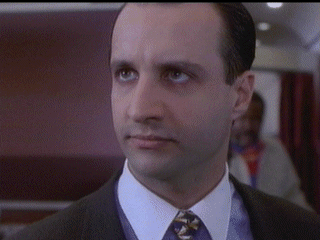Why Is The Da Vinci Code Banned In Some Countries?
Curiosity piqued? Wondering why The Da Vinci Code has been banned in some countries? Well, hold onto your seats as we dive into the mysterious world of censorship and controversy surrounding this gripping novel. Prepare to uncover the secrets behind why this international bestseller has faced restrictions in various corners of the globe.
The Da Vinci Code, penned by Dan Brown, has captivated readers worldwide with its intricate plot and thought-provoking themes. However, despite its immense popularity, this literary masterpiece has faced its fair share of opposition, leading to its banishment in certain countries. So, why has The Da Vinci Code found itself on the wrong side of the censorship battle? Let’s unravel the enigma and shed light on the reasons behind its prohibition, exploring the controversies, religious sensitivities, and cultural clashes that have contributed to its ban in some nations.
Now, grab your magnifying glass and join us on an investigative journey as we delve into the tangled web of intrigue surrounding The Da Vinci Code. From religious fervor to cultural clashes, we’ll uncover the hidden truths behind its banishment, shedding light on the reasons that have sparked heated debates and fervent opposition in certain countries. So, buckle up, fellow detectives, as we embark on this thrilling quest for knowledge and explore the mysteries of why The Da Vinci Code has been banned in some corners of the world.

Why is The Da Vinci Code Banned in Some Countries?
The Da Vinci Code, a bestselling novel by Dan Brown, has garnered significant controversy and has been banned in several countries around the world. The book, which explores religious themes and conspiracy theories, has faced criticism from religious groups and conservative societies. In this article, we will delve into the reasons behind the banning of The Da Vinci Code in certain countries and the impact it has had on the literary world.
Religious Sensitivities and Blasphemy
The Da Vinci Code delves into sensitive religious topics, particularly questioning the divinity of Jesus Christ and presenting alternative theories about the origins of Christianity. The book suggests that Jesus may have been married to Mary Magdalene and had descendants, challenging traditional Christian beliefs. This portrayal of Jesus and the Church has been deemed blasphemous and offensive by some religious groups.
In countries with strong religious sentiments, such as India and Iran, The Da Vinci Code has been banned due to concerns about the potential for religious unrest. Religious leaders and conservative organizations have argued that the novel undermines the core tenets of their faith and promotes heretical ideas. The fear of social and religious upheaval has led to the prohibition of the book in order to maintain peace and harmony within these communities.
Threats to National Security
Apart from religious sensitivities, The Da Vinci Code has also faced bans on the grounds of national security in certain countries. The book’s intricate plot revolves around conspiracy theories involving secret societies and hidden messages within famous artworks. Some governments believe that the dissemination of such ideas can lead to social unrest and instability.
In countries like China and Russia, where tight control over information and narratives is maintained, The Da Vinci Code has been banned to prevent the spread of ideas that challenge the official historical narratives or political ideologies. The book’s exploration of secret societies and the potential manipulation of historical events is seen as a threat to the established order and can be seen as sowing seeds of doubt among the population.
Legal and Cultural Restrictions
In addition to religious and political reasons, The Da Vinci Code has also faced bans due to legal and cultural restrictions in certain countries. Some nations have laws that prohibit the portrayal of specific historical figures or events in a controversial or negative light. The Da Vinci Code’s portrayal of Jesus, the Catholic Church, and other historical figures has clashed with these laws, leading to its prohibition.
Moreover, in countries with conservative cultural norms, there is a tendency to restrict content that is deemed immoral or offensive. The explicit and provocative nature of The Da Vinci Code has been seen as crossing these cultural boundaries, leading to its ban in countries like Saudi Arabia and Malaysia. These societies prioritize maintaining traditional values and preventing the spread of ideas that challenge their cultural norms.
Impact on the Literary World
The banning of The Da Vinci Code has sparked intense debates about censorship, freedom of speech, and artistic expression. Critics argue that banning a book limits intellectual discourse and hinders the free exchange of ideas. They believe that readers should have the right to access diverse perspectives and form their own opinions.
However, proponents of the bans argue that restrictions are necessary to protect societal values and prevent the spread of potentially harmful ideas. They believe that certain religious, political, or cultural boundaries should be respected in order to maintain social cohesion and prevent unrest.
Despite the controversy and bans, The Da Vinci Code remains a popular and influential work of fiction. It has sold millions of copies worldwide and has been translated into numerous languages. The banning of the book has also generated significant publicity, further fueling interest in its content.
In conclusion, The Da Vinci Code has been banned in several countries due to its exploration of sensitive religious themes, potential threats to national security, and clashes with legal and cultural restrictions. The book’s prohibition has sparked debates about censorship and freedom of speech. Regardless of the bans, The Da Vinci Code continues to captivate readers and provoke discussions about religion, history, and conspiracy theories.
Key Takeaways: Why is The Da Vinci Code banned in some countries?
- The Da Vinci Code is a book and movie that has been banned in certain countries due to its controversial content.
- Some countries consider the book to be blasphemous and offensive to religious beliefs.
- The book’s plot involves a fictional conspiracy theory surrounding the Holy Grail and challenges traditional Christian beliefs.
- Countries with strict censorship laws often ban books and movies that they deem to be a threat to social order or national security.
- The banning of The Da Vinci Code has sparked debates about freedom of expression and censorship.
Frequently Asked Questions
Why do some countries ban The Da Vinci Code?
While The Da Vinci Code by Dan Brown has gained immense popularity worldwide, it has faced bans and controversies in several countries. The reasons behind these bans vary, but they often revolve around the book’s portrayal of religious themes and historical events. Some countries with strong religious beliefs and cultural sensitivities have deemed the book offensive or blasphemous, leading to its prohibition.
Additionally, The Da Vinci Code challenges certain established religious beliefs and presents alternative interpretations of historical events, which can be perceived as controversial or provocative. These factors have prompted authorities in some countries to restrict or ban the book to protect the cultural and religious sentiments of their citizens.
Which countries have banned The Da Vinci Code?
The Da Vinci Code has faced bans or restrictions in several countries around the world. Some of the notable countries that have banned or restricted the book include India, Lebanon, Egypt, Pakistan, and Iran. These countries have cited various reasons, such as religious sensitivities, blasphemy laws, and concerns about the book’s impact on public opinion.
It is important to note that while the book may be banned or restricted in some countries, it remains widely available in many others and has gained a massive readership globally.
Are there any legal consequences for possessing The Da Vinci Code in banned countries?
In countries where The Da Vinci Code is banned, the possession and distribution of the book can lead to legal consequences. The severity of these consequences varies depending on the specific country and its laws. In some cases, individuals found in possession of the book may face fines, imprisonment, or both.
It is advisable for individuals residing in or visiting countries where the book is banned to respect the local laws and regulations to avoid any legal issues.
Has The Da Vinci Code been banned in any Western countries?
While The Da Vinci Code has faced controversy and criticism in some Western countries, it has not been outright banned in any of them. Western countries generally uphold freedom of expression and have laws that protect the right to access and distribute books, even if they are deemed controversial or provocative.
However, it is worth mentioning that the book has faced legal challenges and protests in some Western countries, particularly from religious groups or organizations that take issue with its portrayal of religious themes and historical events.
What impact has the banning of The Da Vinci Code had on its popularity?
The banning of The Da Vinci Code in certain countries has, in fact, contributed to its overall popularity and global appeal. The controversy surrounding the book has generated significant media attention and public interest, fueling curiosity among readers worldwide.
The bans have also sparked debates about censorship and freedom of expression, drawing attention to the themes and ideas explored in the book. As a result, The Da Vinci Code has become a cultural phenomenon, attracting readers who are intrigued by its forbidden status and the controversy surrounding it.
The Da Vinci Code phenomenon | 60 Minutes Australia
Final Thought: The Da Vinci Code – A Controversial Tale That Divides Nations
In conclusion, it is evident that The Da Vinci Code has stirred up quite the controversy, resulting in its ban in certain countries. This gripping novel by Dan Brown has captivated readers worldwide with its intricate plot, religious undertones, and thought-provoking ideas. However, its portrayal of sensitive religious topics and fictionalization of historical events have sparked debates and led to its prohibition in some regions.
The banning of The Da Vinci Code is not a unanimous decision, as different countries have varying perspectives on the matter. While some nations argue that the book undermines religious beliefs and promotes blasphemy, others see it as a work of fiction that encourages critical thinking and exploration of alternative theories. This divide highlights the power of literature to challenge societal norms and provoke discussions on faith, history, and the boundaries of creativity.
Despite the controversy surrounding its publication, The Da Vinci Code remains a testament to the impact of literature on society. It encourages readers to question established narratives, explore different viewpoints, and engage in intellectual discourse. Whether banned or celebrated, this novel has undoubtedly left a lasting impression on the literary world and continues to ignite debates about the intersection of religion, art, and freedom of expression.
So, dive into the pages of The Da Vinci Code and embark on a journey that will test your beliefs, challenge your perceptions, and leave you pondering the mysteries of the world. After all, it is through such controversial works that we expand our horizons and gain a deeper understanding of the complexities that shape our existence.






